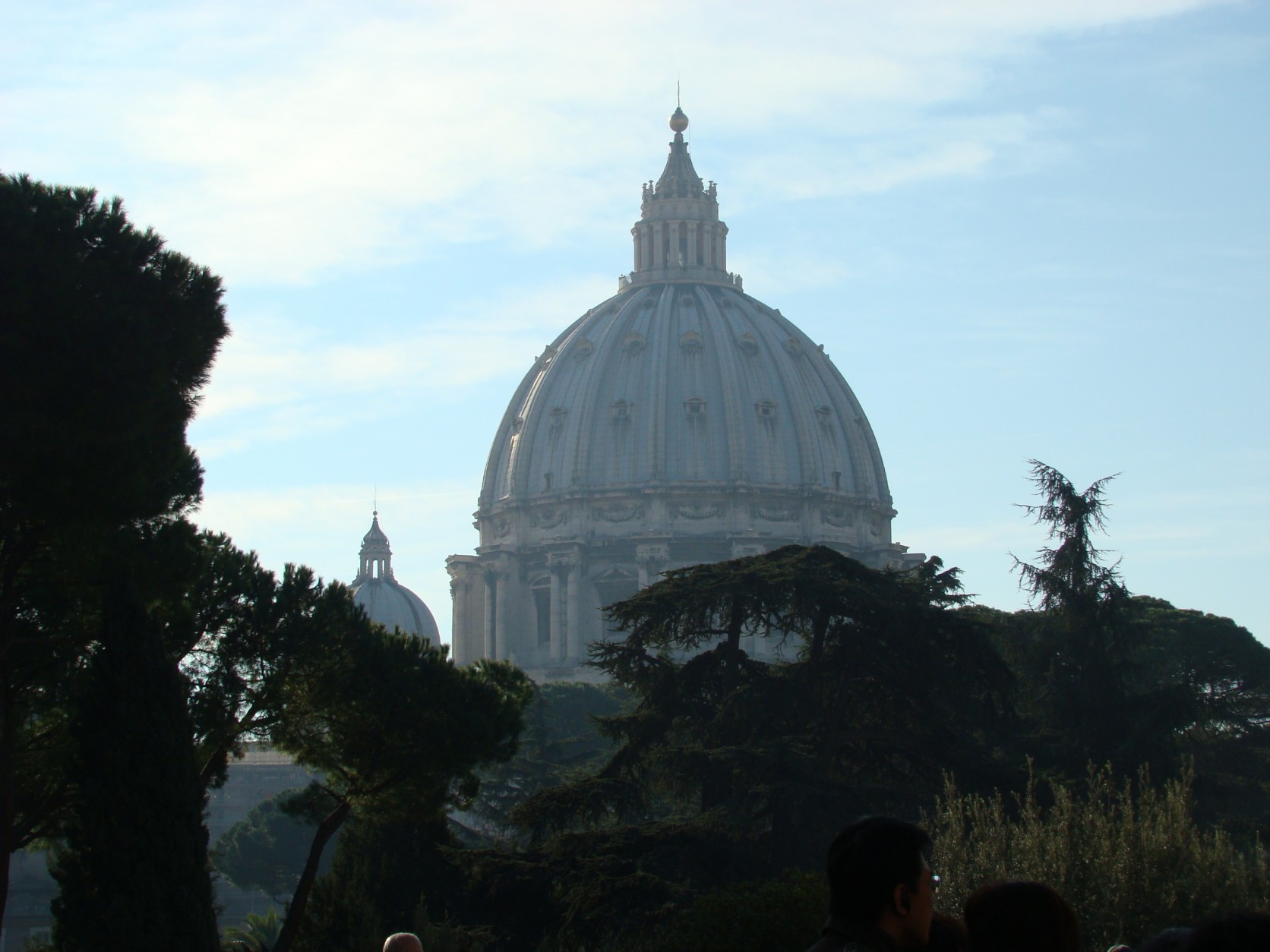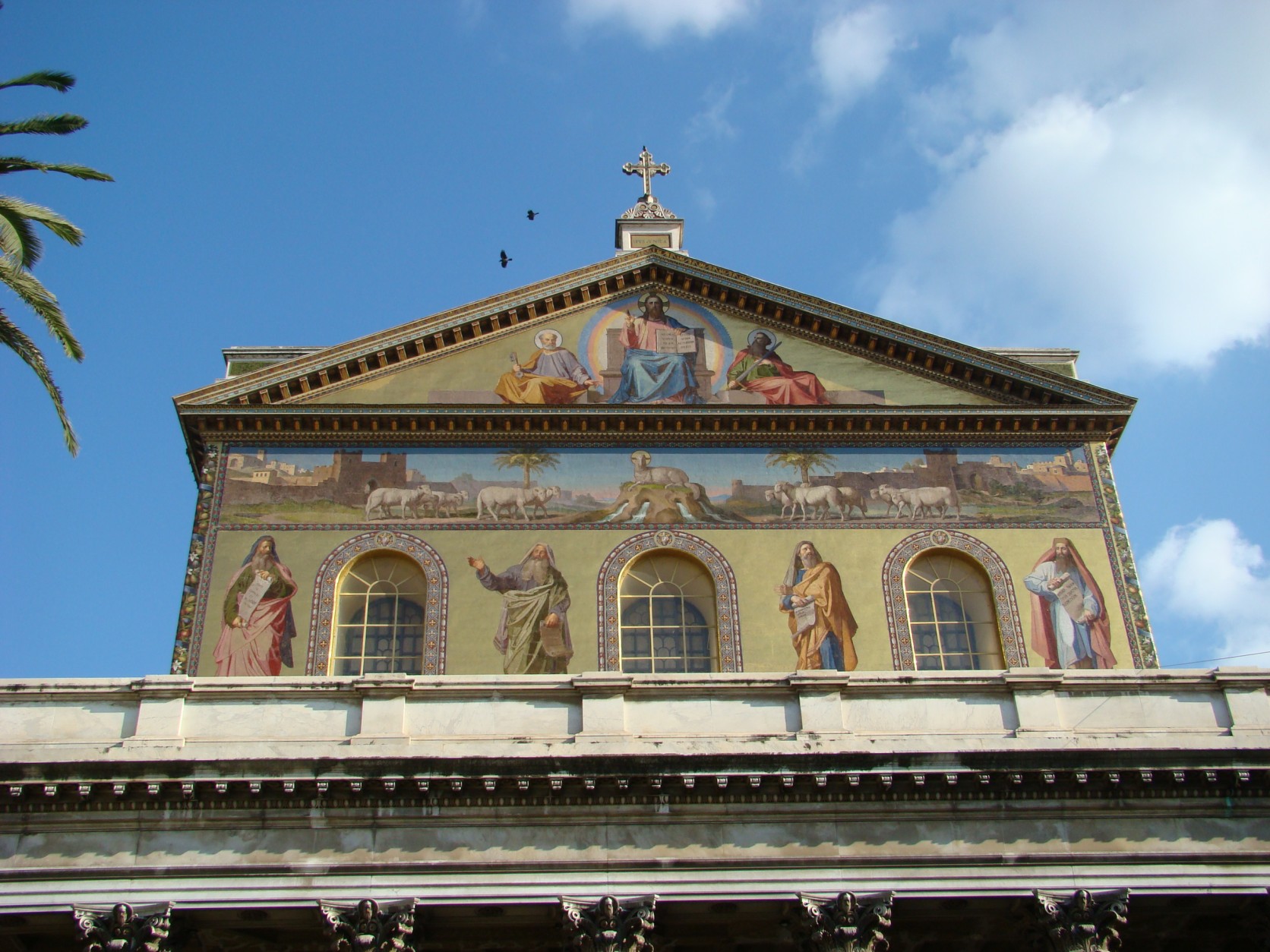Is. 56:1, 6-7; Ps 67:2-3, 5, 6, 8; Rom. 11:13-15, 29-32; Mt. 15:21-28
The Lord provides a “house of prayer for all peoples” who “observe what is right, do what is just”. This is that house of prayer that Jesus instituted as he poured down the Holy Spirit upon his people on Pentecost. Pentecost is considered the birth of the Church with Jesus as our High Priest and the disciples as the new Apostolic priesthood for the world. The Lord makes joyful this house of prayer uniting our worship of the one true God with all the angels and saints in the Eucharistic celebration of the body and blood of Jesus. It is the presence of Jesus in his house of prayer that is welcoming all people calling us to observe all that he taught.
St. Paul calls himself “the apostle to the Gentiles”. The other apostles were going out to minister to the Jews in the synagogues that had spread throughout the ancient territory during several periods of exile called the Diaspora. While the Jewish population was significant it was also small compared to the rest of the Gentile world. Paul saw his calling was to the Gentiles who were pagan and followed many gods. In the end, Paul became the greatest evangelizer of the world. Paul desires “to make his race jealous” that they may see the face of God shine upon the Gentiles and come to conversion and “thus save some of them”.
Years ago, in the 1970’s when I was going to college in California, I went to a Native American festival. People kept asking me what tribe did I belong to. They saw in me what I did not recognize in myself. More recently I had a DNA test done and found out that I was 53% Native American. It makes me wonder without St. Paul being called by Jesus which tribe would I belong to today? St. Paul takes Jews and Gentiles and binds us all together as God’s creation for we all belong to the one human race God created in his image.
St. Paul reminds us that “God delivered all to disobedience” meaning we were all born with the original sin of disobedience from Adam and Eve. We all fall short of the glory of God. We all sin and are in need of forgiveness. We are also all called to conversion that we may all receive the mercy of God. Within the Christian world of this day there is a misconception among some that profess they have been saved and thus are no longer sinners claiming to belong to the righteous people. They then are forced to project the illusion of perfection while hiding the secret of their sinfulness within the passions of the flesh.
There is a joke which I will modify out of respect to our separated Christian faithful. It says, “Catholics drink their beer in the front porch of the house while other denominations drink theirs on the back porch where no one can see them.” This so called “joke” gives the impression that Catholics seem to accept being sinners without desire to change while other denominations hide their struggle to change for the better. This is a sad duality to live in for it denies God the opportunity to pour out his mercy on his people when we fail to recognize our sinfulness and confess our sins.
The Catholic Church in its wisdom by the gift of the Spirit recognizes that if we are to give worship to God in his house of prayer we first must come and admit our sins to be forgiven and for our sacrifice of worship to be acceptable to the Lord. This is why our Mass begins with the Confiteor. It is the visible testimony of our need for God to fill us with his grace and strengthen our resolve to be a better Christian, to live more holy lives, and to seek his perfection that his face may shine upon us as a visible sign of God’s mercy upon us.
It is in the Lord’s house of prayer that we come to plead “Lord, help me”. The Lord hears the cry of the poor and humble. In the gospel the Canaanite woman pleads to Jesus for healing for her daughter. Jesus speaks to the truth of his coming “to the lost sheep of Israel” but as we discover the lost sheep not only did not accept him but crucified him. Jesus in his divinity understood what was to come yet he spoke to fulfill the law and then he acted to perfect the law through the Canaanite woman, the law of love, mercy and grace.
Jesus spoke harshly to the Canaanite woman for she represented a culture that was polytheistic, worshiping many gods who were condemned in the Old Testament. Canaanites were inhabitants of Sodom and Gomorrah destroyed by fire directly by God. They were hostile to the Israelites as God gives to Abraham in Genesis the land of Canaan. In this context we can say that the “enemy” of the Israelites is now asking for a favor from Jesus and he makes the comparison between children and dogs. The woman however has the great comeback “even dogs eat the scraps that fall from the table of their masters”.
A child comes into this world through the womb of a mother. She gives life to this child, blood of her blood and through the womb a mother knows sacrificial love. When a child becomes sick a mother’s desire is to wish the sickness on herself if it would heal her child rather than see her child suffer. It is humbling to see a child suffer and from deep within the sincerity of prayer comes to life our nothingness if we don’t have God. The Canaanite woman was both humbled by Jesus and filled with faith from her love of a daughter.
I have a small inside dog and I feed him before sitting down to eat. He knows to not be asking for food from the table and sits just watching. He also has a great nose to smell and if anything falls on the floor, he is quick to walk around and snap it up. He is a canine vacuum cleaner when it comes to food on the floor. In this woman Jesus discovers the sincerity of her heart and her persistence in pleading to the Lord. She gives witness to his disciples of great faith granting her petition and extending his mercy and love beyond the people of Israel. If he can heal a Canaanite child then his law of love is now for all who come to him with great sincerity of heart.
As we come to Mass today let us come with the same sincerity of heart as the Canaanite woman not acting out of the law of compliance but out of the law of love. Let our prayer speak to our minds and reach deep into our hearts. It is easy to fall into repetition of prayer and never truly pray. Prayer comes from deep within, an honest expression of our very being, thoughts, feelings and experience of life as an offering of ourselves to God in this his house of prayer.





Recent Comments